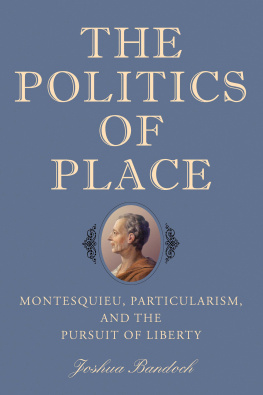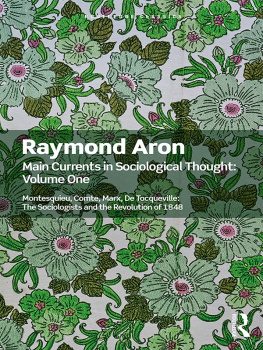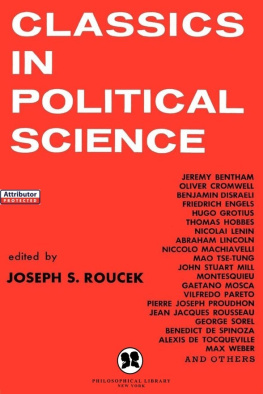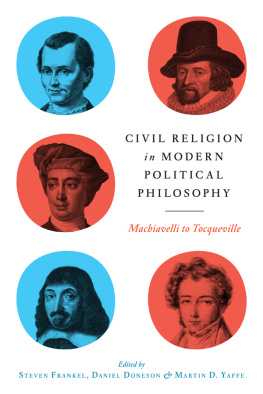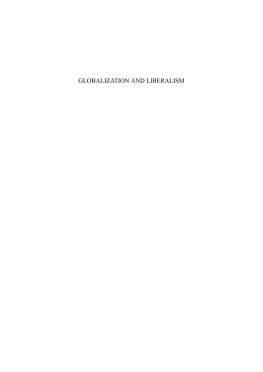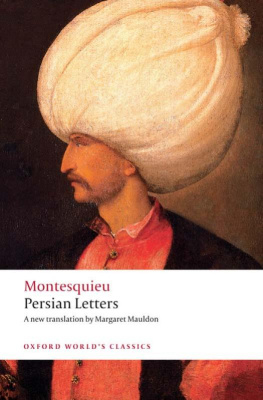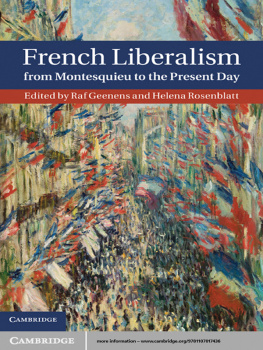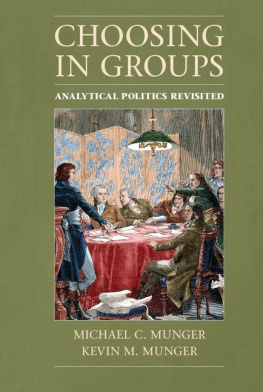THE POLITICS OF PLACE
Many Enlightenment thinkers sought to discover the right political order for all times and all places, and scholars often view Montesquieu as working within this project. In this reassessment of Montesquieus political thought, Joshua Bandoch finds that Montesquieu broke from this ideal and, by taking into account the variation of societies, offered a more fruitful approach to the study of politics
Through a careful reading of Montesquieus political writings, Bandoch shows that for Montesquieu the politics, economics, and morals of a society must fit a particular place and its people. As long as states commit to pursuing security, liberty, and prosperity, states can indeed, should define and advance these goals in their own particular ways. Montesquieu saw that the circumstances of a place its religion, commerce, laws, institutions, physical environment, and mores determine the best political order for that place. In this sense, Montesquieu is the great innovator of what Bandoch calls the politics of place. This new reading of Montesquieu also provides fresh insights into the American founding, which Montesquieu so heavily influenced. Instead of having discerned the right political order, Bandoch argues, the Founders instituted a good political order, of which there are numerous versions.
Joshua Bandoch earned his PhD in political science from the University of Notre Dame. He has taught at Brown University and the University of Wisconsin-Madison.
Acknowledgments
The seeds for this project were planted in a graduate seminar during my senior year at the University of Maryland, College Park, taught by Charles Butterworth. The class, on Constitutionalism, the French Antecedents: Pascal, Montesquieu, Rousseau, and Constant, introduced me to Montesquieu. More than anything, I was struck by the complexity of Montesquieus thought. My debt to Charles, my model teacher-scholar, is enormous. He has remained an invaluable mentor and has assisted with this volume in various ways, including helping me work through some complicated issues, and with some translations. (All remaining infelicities certainly are my own.)
My graduate studies at Notre Dame afforded me the opportunity to study Montesquieu extensively. Catherine Zuckert was an excellent advisor, always pushing me to improve, while providing direction and help to do so. Fortunately, I continue to benefit from her advice. I also profited greatly from working with Michael Zuckert, Fred Dallmayr, and Jim McAdams. Their insights strengthened my research on many fronts, and they were always ready, willing, and able to provide good feedback. The Nanovic Institute for European Studies was especially generous with its support throughout my time at Notre Dame. Nanovic facilitated much of my research, including stints in Munich, Paris, and Bordeaux. The staff at Nanovic was always a pleasure to work with.
I started research on this book at the Political Theory Project at Brown University, where I was a postdoctoral research associate for two years. John Tomasi provided an excellent environment in which to work and think. Whats more, John helped me sharpen my project, my writing, and my thinking more generally, in critical ways. Im grateful for all of his guidance. While at Brown I benefited from conversations with Gordon Wood, Sharon Krause, Bonnie Honig, and Annie Stilz. Dina Egge and Mary Massed helped facilitate many of my endeavors. My research assistants Alexia Ramirez and Marta Nicita provided valuable help on many fronts.
I completed this project at the University of WisconsinMadison while a postdoctoral fellow in the American Democracy Forum, housed in the Department of Political Science. John Zumbrunnen provided another good work environment. I am especially grateful for the opportunity to have had a book workshop, where John, Vickie Sullivan, and Aurelian Craiutu provided me exceptional feedback that has helped me improve the manuscript. My research assistants Rebekah Cullum and Michael Promisel helped a great deal as I completed this project. Rebekahs diligence merits particular praise.
My debts extend well beyond these people and institutions. Special thanks to Cline Spector, who was a gracious host while I worked at Universit Michel de Montaigne Bordeaux 3. She has shared many insights on Montesquieu over the years and sharpened my thinking about the Baron. Sophie Maloubier and Pascal Pierozzi made everything about my time in Bordeaux easier and more pleasant. Heinrich Meier was kind enough to permit me to sit in on one of his seminars, on Rousseau, in summer 2007 at Ludwigs-Maximilians-Universitt in Munich. His attention to detail in the text is beyond meticulous, and our discussions were rewarding. I have benefited from conversations and insights from Catherine Volpilhac-Auger, Diana Schaub, Paul Rahe, Jason Brennan, Matthew Mendham, and Genevive Rousseliere. The Institute for Humane Studies has been an intellectual home away from home. In particular, Id like to thank Nigel Ashford and Bill Glod for their support. I owe much gratitude to the donors who have supported me over the years, especially donors to the Political Theory Project, American Democracy Forum, Nanovic Institute, and Institute for Humane Studies. Their generosity has made much of my work, and the work of countless others, possible. Thank you.
The University of Rochester Press has been a pleasure to work with. Sandy Thatcher reviewed the manuscript carefully, posed good questions, and found two top scholars to review my work. Dennis Rasmussen and Michael Mosher (both of whom kindly revealed their identities) provided remarkable feedback that helped me hone my argument further, clarify when necessary, and improve in many ways. Sonia Kane and Ryan Peterson have been insightful editors too, helpfully navigating the manuscript to completion. Robert Fulliloves careful copyediting improved the manuscript.
An earlier version of parts of appeared as Montesquieus Selective Religious Intolerance in Of the Spirit of the Laws , in Political Studies 64, no. 2 (2016): 35167. I wish to thank the publishers for their kind permission to reprint.
My friends and family have provided unending support as I worked on this project. My mother, Cheryl Bandoch, deserves more thanks than I can provide. In particular, her dedication to my education has opened innumerable doors for me. My late grandmother, Mary Forrest, taught me more about hard work than I could express. My father, John, sister, Christina, and Aunt Karen have been important sources of support. Pascal always makes me smile. Patrick Alban and Marcel Betsch have been valued friends for many years. Marcel has been an intellectual companion and a model for being so fleiig . To my wife, Maria, who is a Montesquieu expert by now after reading (and rereading) every chapter, I am grateful for her unending love, care, and patience. I dedicate this book to her.

